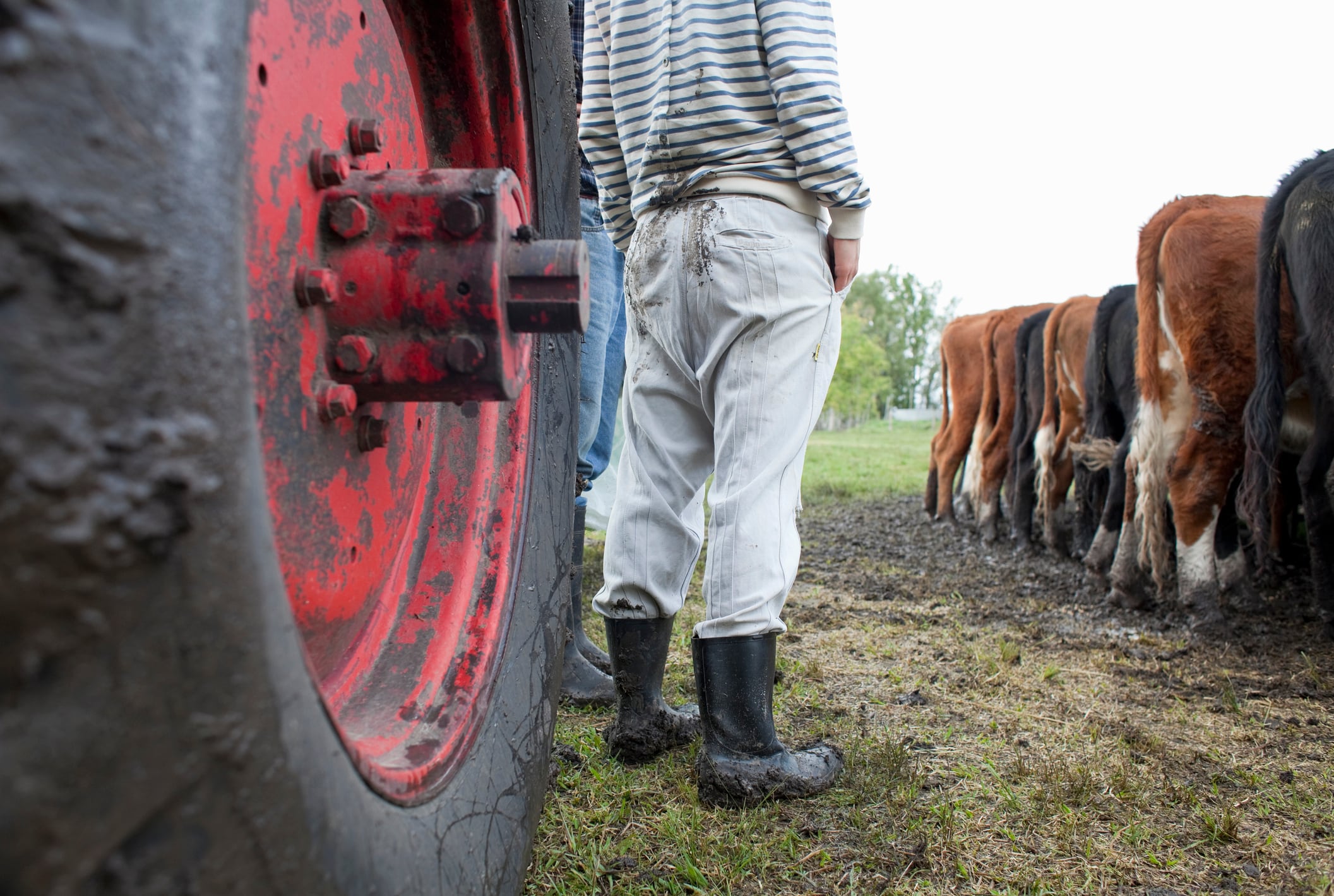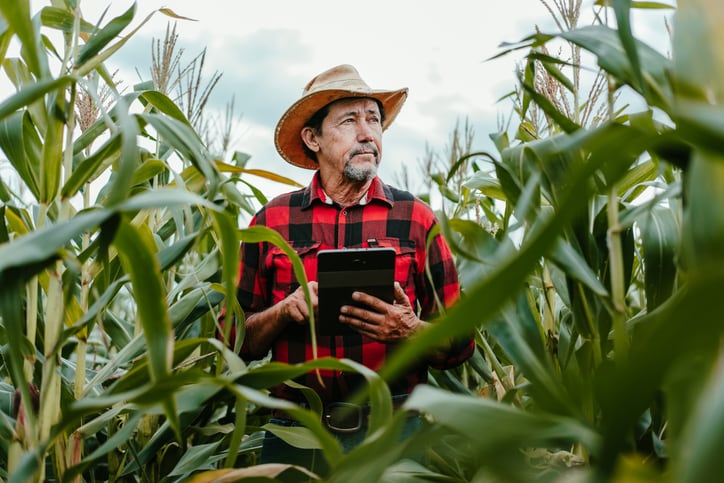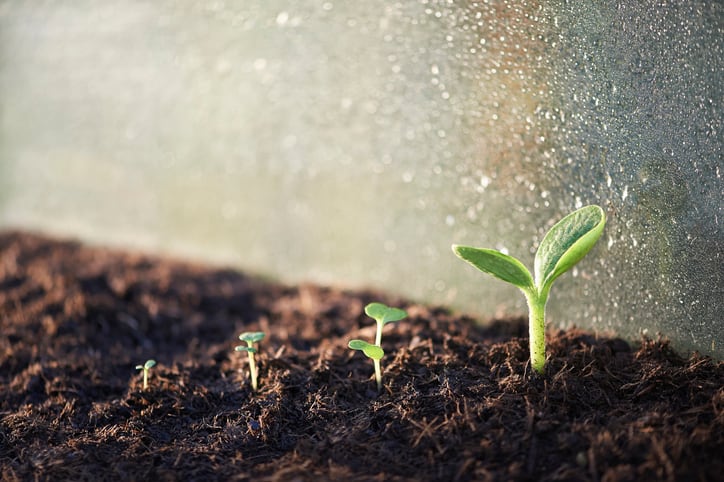Argentina’s confrontational president Javier Milei always warned his reforms for the country’s crippled economy would be painful. For farmers, that’s proving especially so.
Milei came to power in 2023, promising to curb inflation as his number one priority. Now just over a year later, a series of brutal cuts seems to be working with monthly inflation down to 2.2% in January, its lowest level in almost five years.
Even the International Monetary Fund (IMF) has noted the “impressive progress” while the Bank of America said Milei’s plan “is working better than expected.”
But for farmers, things are not so rosy. Argentina’s plunge in inflation has contributed to a resurgence in the peso – bad news for an agricultural sector which exports over $60bn of goods a year making it the third largest net food exporter in the world.
They are also still battling export taxes, a long-held policy of previous governments that was used to fund bloated public budgets. While Milei’s government temporarily reduced them in January to help farmers battling drought and low global prices, it’s been made clear the government isn’t yet able to remove them permanently.
Yet Milei knows he can’t leave farmers under the cosh for much longer. Not only were they key to his election victory, they contribute about 20% of the country’s gross domestic product.
“We said we were going to lift the restrictions and every day we do,” Milei said at the annual La Rural convention in July. “No one is as eager as we, and me in particular, to get out of this disastrous model where the state, through withholdings and restrictions, expropriates 70% of what the countryside produces.”
Can Argentina emulate Brazil?
The hope is that Argentinian farmers can benefit in much the way that certain Brazilians did during the deregulation of their economy in the 1990s when agriculture began drawing big hikes in private funding to adopt new technologies and equipment.
“Argentina has always had great farmers, operators, technical guys. But they had their hands tied,” says Francisco Jardim, general partner at SP Ventures, a Brazilian-based venture capital fund. “Now they’re getting free reign, I think we’re going to see this revolution start to impact.”
Argentina’s tax policies have no doubt taken a toll on farming’s development in recent years, with the World Bank noting last year that sky-high export taxes 10 years ago created a squeeze on farmers’ margins that limits their ability to adopt new technologies to this day.
As a result, “there has been a notable increase in the yield gap between Argentina and its main international competitors for the main crops during the past decade,” it said in a report, adding the negative trend was exacerbated by regulatory limitations on seed royalties which had reduced investment, and hence development, in new seeds.
Its left Argentina is the world’s only major agricultural exporter with shrinking exports, a marked contrast with Brazil, which having only overtaken Argentina on grain exports in 2012, exported around 70% more just 10 years later.
The squeeze was also felt in Argentina’s agtech businesses under previous governments due to severe limits on the credit alongside restrictions on foreign investors moving money in and out of the country.
“In the last years, all of the businesses were built around the government, so it was most important to have a key to open a government office rather than an idea and ability to develop,” says Federico Mayer, founder and CEO of Club AgTech, an agricultural consultancy in Argentina.

An unstable government also meant sharp twists in policy and interventions, Mayer adds, meaning businesses were unable to concentrate on long-term plans and instead poured their efforts into remaining adaptable.
“Innovation was seen in flexibility,” he says. “But if you go to seed innovation patents, for example, or how to protect that innovation, Argentina is not in a good place. We’ve lost a lot of competitiveness against Brazil.”
Yet under the right conditions, many insist Argentina’s sector can still thrive. It is a regional hotspot for innovation having given rise to Latin America’s first three ‘unicorn’ companies valued over $1bn.
In agriculture, its success stories include Bioceres, now listed on the Nasdaq in New York, and Beeflow, a startup gaining global attention for its ability to boost bees’ pollination power while teaching them to pollinate specific crops.
Aaron Magenheim, founder and CEO of AgTech Insight in California, says that the difficulties farmers faced in recent years pushed them to be more economically minded, triggering positive knock-on consequences for start-ups in the sector.
“Argentina farmers have to be good bankers. So as a start-up you can promise to save 20% in inputs or increase yields by 20% but the farmer will say: ‘well, if I’m not a good banker, I can lose that in a month or two months just in inflation.’”
As a result, businesses have learnt to be far more creative and efficiency in building maximum value from their ideas in very short timeframes, Magenheim argues. “An Argentinian start-up will get 10 or 20 times further with the same amount of money, because they have to drive much more value.”

People-to-people is key to business
Start-ups must also deal with another unique feature of Argentina’s agricultural ecosystem: CREAs, a farmer-led movement to foster collaboration and knowledge sharing.
Made up of about 2,000 farmers split into groups across the country’s different regions, CREAs often meet every month or two to share data and insights on different farming techniques, new technologies, what’s working, and what’s not.
“It means when they find a technology that works, it spreads really quickly,” says Magenheim. “Whereas in most of the world, someone finds something that works and they don’t want others to know, Argentinians feel like its them against the government, against Brazil, against the world.”
For start-ups, this means success with one farmer can therefore be transformational. A bad reputation, however, can spread very, very quickly. “You’ve seen companies completely disappear because they didn’t do something right with one group,” Magenheim says.
An entrepreneurial revolution
With Milei’s reforms now well underway, investors across South America say they are already seeing a transformation as the sector looks to catch up with its rivals in the like of the US and Brazil.
“The deal flow [in Argentina] was always good but over the last 12 months, we’re seeing more interest, more quality,” says Jardim at SP Ventures.
“It’s a revolution in deregulation, in fiscal responsibility, in privatisations,” he adds. “An entrepreneurial revolution.”




